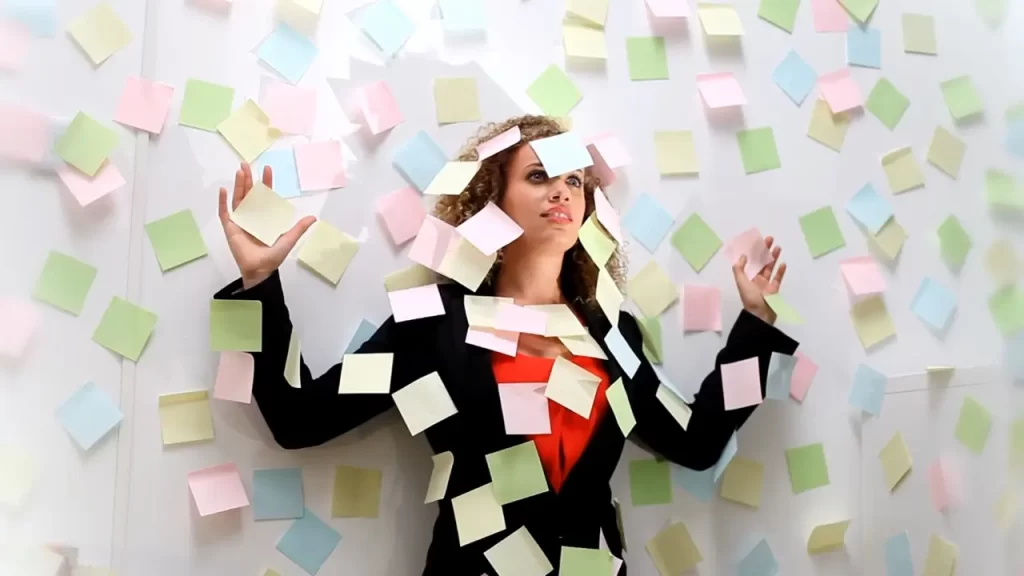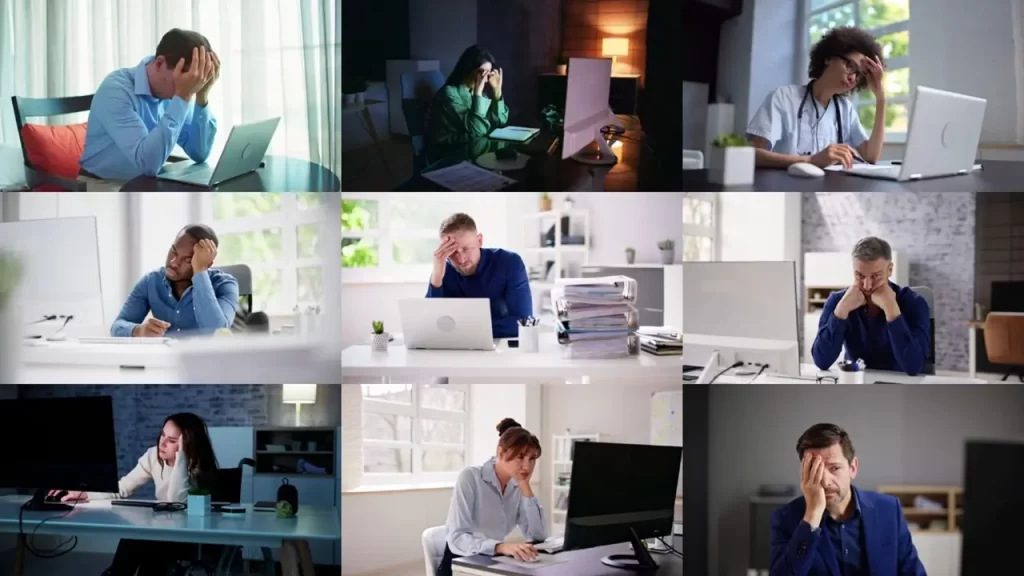Women have a habit of doing many things at once, so that they can sit and relax for a while. But this is not possible. After one task is over, another comes up and then a third. Due to this, they start doing many things at once, but this habit of doing many things at once sometimes puts them in trouble.

The pressure of doing many things at once starts increasing anxiety and depression. This can give rise to feelings of despair and anxiety in your mind.
It was six in the morning. The children were asleep, the husband was also fast asleep. Mrs. Verma was also feeling sleepy, but she had to get up. Otherwise breakfast and lunch for the office would not be prepared. Clothes also had to be put in the washing machine. The child’s uniform had to be ironed. For Mrs. Verma, the house remains a war zone from six or six thirty to eight in the morning. In this battle field, she fights alone every day with different tasks, in which she has to win, because there is no option of losing.
By the way, Mrs. Verma is not the only one who has to do many tasks simultaneously at a time. Working women of urban middle class do many tasks simultaneously every day, which is called multitasking. Ask any woman, the answer you will get is, “This is my daily work. There is no option to avoid it.”

Men are also multitaskers, but women have the additional pressure of reaching office on time as well as sending their husbands and children to office and school on time. This pressure increases after a while and gradually increases so much that it starts affecting the mental health as well as the physical health of women.
In today’s fast-paced world, doing many tasks at a time has become normal, especially for those women who handle many responsibilities. Whether they are working women or housewives. The pressure to fulfill household chores, family responsibilities and personal needs often leads women to multitasking.
At first glance, it seems like a better way to handle multiple tasks simultaneously, but research shows that multitasking has adverse effects on physical and mental health. If you are also multitasking, then it is important to know its good and bad effects and ways to organize them.
Is it a Trait?
Doing multiple tasks simultaneously is often considered a trait, although scientific studies disprove this myth. Studies show that the human brain is not designed to do multiple tasks simultaneously.
If we do multiple tasks simultaneously, it is actually task-switching, that is, starting another task while doing one task and continuing to do a third task simultaneously. This also forces your brain to switch, which affects your skills and efficiency.
This effect can also harm the overall capacity of the brain. Therefore, multitasking cannot be considered just a trait, because this constant switching between tasks can reduce efficiency and increase stress.
Blood Pressure can Increase
Doing multiple tasks simultaneously can increase stress, as the brain struggles to keep up with the task while task-switching. When stress increases and becomes chronic, it releases a hormone called cortisol, which can lead to more fatigue, high blood pressure and weak immunity.
Women who use their brain to do multiple tasks simultaneously can be more vulnerable to diseases. At the same time, the stress and mental fatigue caused by this can disrupt sleep patterns, due to which you may have difficulty in calming your mind.
Effect on Personal and Professional Life
Doing this disrupts your memory, attention and everyday tasks. This reduces the brain’s ability to collect, concentrate and process information. The result is that you start making mistakes again and again in the work that you used to do easily and correctly till yesterday. These mistakes lead to various problems which you are unable to solve effectively.
The constant pressure of doing many tasks simultaneously increases anxiety and depression. This can give rise to feelings of frustration and anxiety in your mind.
Women who are in a demand-supply related field or who do household work are more physically and emotionally exhausted because they do not get proper support in both these forms. This has a serious impact on both personal and professional life.
Easy Multitasking is the Right Option
It is difficult to do two or more tasks simultaneously than to focus on just one task at a time, but less than two percent of women are able to do this multitasking efficiently. Doing multiple tasks simultaneously has significant effects on the brain and health. It affects the functioning of the brain, increases chronic stress and fatigue syndrome, causes depression and adversely affects memory. Therefore, you should try to eliminate distractions. Complete the tasks one by one on priority basis. On the other hand, a disorganized home or workplace increases stress and makes you do many tasks simultaneously. So keep your place organized and clean. Do yoga and meditation. It increases peace of mind and decision-making ability. Meditation helps to keep the brain focused again. You should do simple multitasking, that is, it is easy to do simple tasks like walking while solving a problem and it does not cause any harm.
How to Do Many Things Simultaneously
Dr. Aparna Dutta, a dentist by profession, says, “Being a mother, it is a bit difficult to manage home and office simultaneously, but it is said that ‘when everyone is with you, then what is there to fear.’ Even then, I face a lot of problems, but I divide all these tasks into smaller parts. I also decide how much time to give to which work.
Secondly, I also take help from my family members. My husband and my daughter, both fully support me in my work. Through this, my daughter is learning to be self-dependent. At the same time, I also get time for myself, which is very important for both my physical and mental health.”
It is true that multitasking is important, especially for women, but you should know the right way to do it, otherwise you may face problems.
Time Management and Single-Tasking
Prioritizing tasks and effective time management can reduce the need for multitasking. For this, you can create a daily schedule, in which specific time is set for each task. This helps in focusing and you are able to work better. Single-tasking or focusing on one task at a time can increase your work efficiency and improve the quality of work.
Physical Activities and Relaxation
Mindfulness exercises, such as meditation and deep breathing techniques, help to stay focused on the task. These regular physical activities help to combat the physical and mental stress associated with multitasking.
Exercise releases endorphin hormones, which are natural mood lifters. Incorporating yoga into life can promote physical health and mental peace. So make sure to include it in the routine during or after multitasking.
Setting Boundaries
It is important to establish clear boundaries between work and personal life. After all, any work should have a limit. Women often feel the responsibility to do everything themselves, which can lead to stress and exhaustion.
There is nothing wrong with sharing tasks, whether in the office or at home, and asking for help when needed. Asking for help reduces the burden. This includes sharing household responsibilities with family members or seeking professional help for specific tasks. So, if possible, share the work and seek help.
Multitasking is not entirely wrong, however it can have a detrimental effect on both physical and mental health, especially on women who play multiple roles. Understanding these effects and adopting the right methods to manage tasks more effectively can help you improve your health and life.
Prioritisation, mindfulness, physical activity, task distribution, setting boundaries and adopting a healthy lifestyle are the keys to reducing the adverse effects of multitasking.
Give Your Mind a Break After Finishing Work
Most studies confirm that multitasking is a myth. Women who think they can multitask are actually losing time, attention and concentration. Recent studies show that mothers are more time-pressed and have worse mental health than fathers. The general opinion is that women are multitaskers from childhood, although this is just a popular belief. The efficiency of men and women is usually quite similar. Inadequate use of time during task switching leads to mental blocks, memory function, anxiety and depression, creative blocks and the ability to collaborate. So practice stabilizing your mental state after finishing one task and then shifting your focus to the next task. After you finish your work, take a walk outside, take a short walk, look at flowers and nature and try to calm and relax your mind.


























